Focus on connectivity, bilateral trade
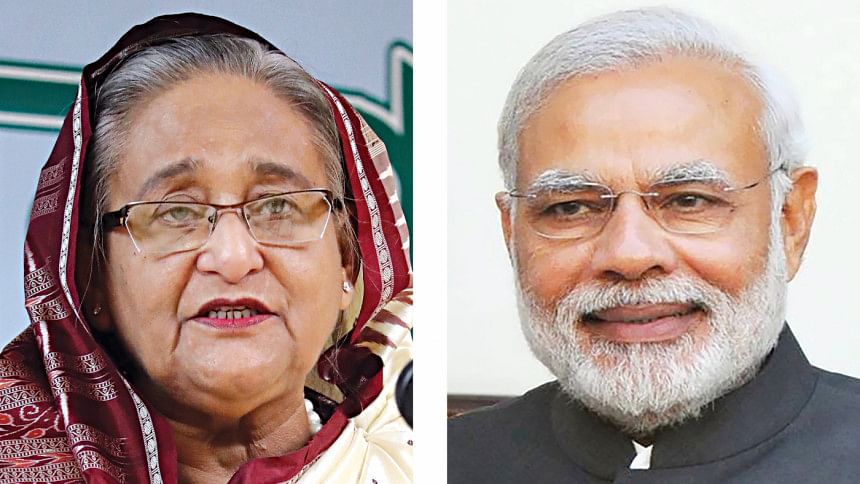
As Prime Minister Sheikh Hasina and her Indian counterpart Narendra Modi are set to hold talks in New Delhi today, India yesterday said the two countries were discussing steps to take the bilateral relations to the next level.
Indian external affairs ministry’s spokesperson Raveesh Kumar told reporters that the two sides were expected to sign six to seven MoUs in areas of connectivity, capacity-building and culture after the talks at the Hyderabad House.
He said Hasina and Modi would also jointly inaugurate three projects, but declined to give details.
Asked about the agenda of the talks, Kumar yesterday said, “I don’t want to prejudge what will come up for discussion, but the focus will be on bilateral ties and other issues of mutual interest.
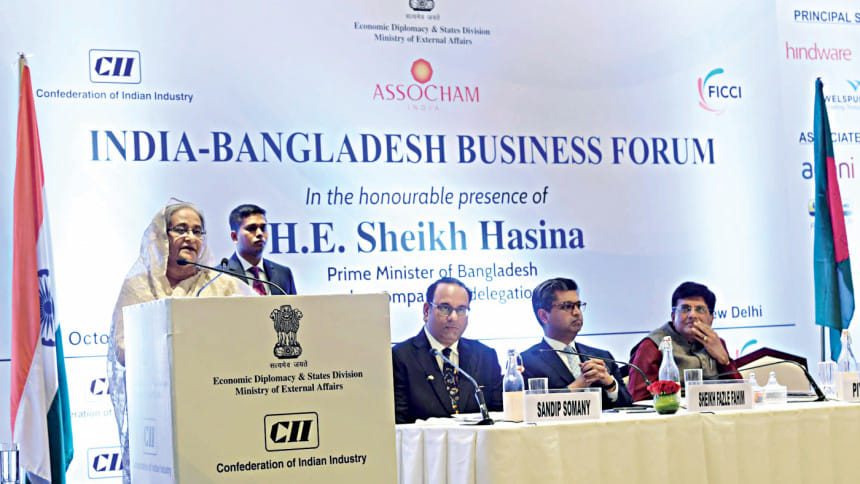
“Relations between India and Bangladesh have never been so close and it is important to understand that we are talking about measures to be taken to take the relations to the next trajectory,” he said, adding, “We are looking forward to the talks tomorrow.”
Replying to a question regarding Modi’s assurance to Hasina at their September 27 meeting in New York that Bangladesh need not be worried over Assam’s National Register of Citizens (NRC), Kumar said, “India’s position on this is very clear. It is an ongoing exercise.
“We have been saying that the NRC was Supreme Court-mandated and monitored process and I think it is important to understand that the due process has to be completed first.”
The final NRC, published on August 31, excluded names of about 19.07 lakh applicants. That day, Indian media reported that most of them were Bangla-speaking people.
Kumar’s comment came a day after Hasina at a reception at the Bangladesh High Commission in New Delhi said she was happy with Modi’s assurance.
“Obosshoyi [of course]. I don’t see any problem. I had talks with Prime Minister Modi. Everything is okay,” she said while replying to questions on the NRC issue, which is likely to come up for discussion at her meeting with Modi today.
Hasina reached the Indian capital on Thursday on a four-day visit to attend the India Economic Summit of the World Economic Forum.
On October 1, Modi’s close aide and Indian Home Minister Amit Shah had made it clear that the NRC programme would be extended to entire India and there would be no space for any illegal immigrants in the country.
Asked about a recent comment of Bangladesh Foreign Minister AK Abdul Momen that the issue of border killings would be raised at today’s talks, Kumar said, “It was important to understand that the number of such killings has come down drastically due to concerted efforts by the two sides and by the border guard forces of the two countries and under the leadership of the two prime ministers.”
Replying to a question on the Teesta water-sharing agreement, the Indian official said the Bangladesh government was aware of India’s stance on the matter.
He said apart from the Teesta, there were several other trans-border common rivers and a secretary-level meeting of the Joint River Commission would be held soon to discuss the water-sharing issues.
In 2011, Bangladesh and India failed to sign the Teesta water-sharing agreement due to last-minute opposition from West Bengal Chief Minister Mamata Banerjee during the then Indian PM Manmohan Singh’s visit to Dhaka.
Even today, the issue still remains unresolved. As a result, farmers in Bangladesh’s northern region depend heavily on underground water for irrigation.
Meanwhile, Indian officials said Bangladesh would supply liquefied petroleum gas to India under an agreement to be signed by the two sides following the Hasina-Modi meet.
This will be the first time LPG from Bangladesh will come to India, India’s Oil and Gas Minister Dharmendra Pradhan said on Thursday.
Another MoU is likely to be inked for a new waterway to connect the Meghna river in Bangladesh with the Gomati river in Tripura, said Tripura Chief Minister Biplab Kumar Deb.
At a function in Agartala on Thursday, Deb said the proposed MoU would facilitate movement of goods from Ashuganj port to Sonamura in Sipahijala district of Tripura.
The movement of vessels on the Gomati for providing waterway connectivity to Tripura would be possible only after the inclusion of the stretch between Sonamura and Daudkandi in Cumilla as part of the Indo-Bangladesh Protocol Route, Deb said.
In June, the chief minister had sought the permission of the shipping ministry through an official letter for construction of a temporary jetty on the Gomati river.
At present, ships and steamers have to take a circuitous route from Haldia in West Bengal to Daudkandi in Cumilla.
If Sonamura and Daudkandi can be linked through waterway, Tripura and north eastern India will get the maximum benefit because of the access it could open up to Chittagong port, Deb said.
Chittagong port is just 70kms from Sabroom, a town in Tripura near the border with Bangladesh.
According to sources, both sides are also in talks for agreements for a special economic zone and a skill development centre to be set up in Khulna.

 For all latest news, follow The Daily Star's Google News channel.
For all latest news, follow The Daily Star's Google News channel. 


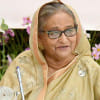
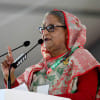
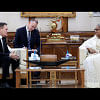
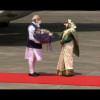


Comments